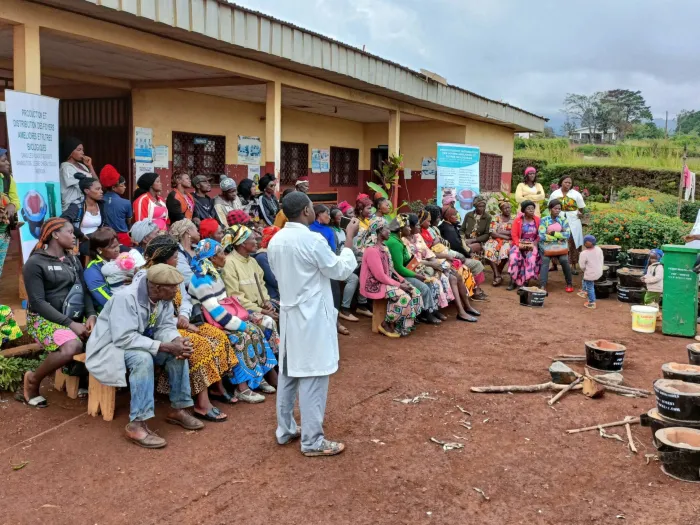By Cindy Corell | Joining Hands Land, Food and Agribusiness Concerns

“Whole cultures of farming, of weaving and knitting, of cooking, preserving and fermenting, of storytelling and music-making, have grown out of the peasant family’s struggle to keep body and mind alive in hard times. What the skeleton is to anatomy, the peasant is to history, its essential, hidden support.”
- Excerpt from: “Owning the Earth: The Transforming History of Land Ownership”
by Andro Linklater
Violence and a political vacuum paralyze Haiti and its people. Its current turmoil with gangs controlling the capital city and cutting off access to the rest of the world, is not uncommon, nor is it a surprise.
It is a country whose people have not known lasting peace since Christopher Columbus landed there in December 1492. Colonization, enslavement and massacres are the legacy of descendants of those enslaved, even after their victory over the French army in 1804.
There is one group, though, whose legacy is survival above all, members of the lowest class, the peasantry who continue to fight for sovereignty. These are the peasantry who like their counterparts in just about every place in the world who have risen to fight for freedom.
“Understanding the role of peasant movements in Haiti is key to understanding the course of political life through the history of our nation,” said Lionel Derenoncourt, former international associate for the Presbyterian Hunger Program. Derenoncourt is a native of Haiti who oversaw the birth of PHP’s Joining Hands initiative.
Chances are you believe the word “peasant” is a derogatory one. It might recall the poor folk of earlier times, men and women who had nothing and survived renting a bit of land to farm.
Centuries later, peasants continue to work the land in several developing countries, often decried as the lowest of the low, but rather are the backbone of struggling societies.
In the Presbyterian Hunger Program, we are honored to accompany those who are known as peasants. In fact, we tip our hat to the peasant movements around the world. These movements are as old as modern life.

Mouvman Peyizan Papaye, the Peasants’ Movement of Papaye, began in 1974 while Haiti was still ruled by a dictator. These farmers, some of whom owned a tiny plot of land and others who farmed in communal fields, had the least rights of anyone in the country. Few of them were literate. They raised large families, a garden or two and had some livestock. They were at the mercy of nature, the economy and bias.
FONDAMA, our Joining Hands network in Haiti is made up of hundreds of thousands of “peyizan” which most outsiders translate as farmers, believing that the term peasant is derogatory. Far from an insult, the word peasant became known for one who works the land and fights for rights, particularly food sovereignty, a term coined by La Via Campesino, the largest international peasant movement that describes a universal right to food.
Since the 1700s peasants worldwide have fought to maintain access to land as agricultural systems modernized. This work continues.
And in places like Haiti, the peasant movement is integral in the local fight for political sovereignty.
Derenoncourt notes the contributions of the enslaved who revolted against tyranny to the Coco Resistance and Charlemagne Peralte who fought against the first U.S. occupation of the country from 1915 to 1934.
“All of that helps to understand that the current instability in our country and the struggle of the rural poor to have its voices heard,” he said. “But that will not keep the people down forever. The Haitian people and our brave peasants shall rise up again and they will save our country from disintegration.”
Please join us in prayer for the people of Haiti
The work of the Presbyterian Hunger Program is possible thanks to your gifts to One Great Hour of Sharing.
You may freely reuse and distribute this article in its entirety for non-commercial purposes in any medium. Please include author attribution, photography credits, and a link to the original article. This work is licensed under a Creative Commons Attribution-NonCommercial-NoDeratives 4.0 International License.




